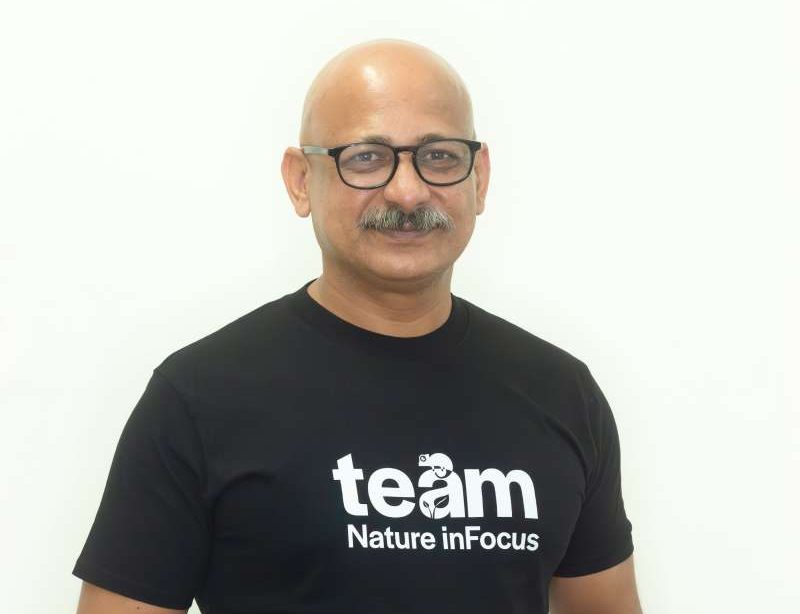Even as the number of documentaries made on the environment in the West outshines Indian productions, he says it would be unfair to say that Indian filmmakers are not focusing on environmental issues and that many films feature these issues in India too…writes Sukant Deepak
While mangrove forests are depleting globally, and India does not have a different story, its importance here has not been highlighted enough.
To counter the same, wildlife filmmaker Rohit Varma is set to release his short film ‘The Last Frontier’ on July 26 – celebrated as the ‘International Day for the Conservation of the Mangrove Ecosystem’
While discussing the risk of habitat loss with Godrej & Boyce (G&B) – a manufacturing company pioneering biodiversity conservation, in India, he and his co-director Sara felt the need to highlight the importance of mangroves and shine a light on its preservation.
“The film was produced in the aspect ratio of 5:1, and premiered at Conscious Collective, a three-day-long event curated by G&B Design Labs. The platform’s idea was to create awareness about the need for conscious living, which was perfectly communicated by our film. The original aspect ratio needed a large screen. The 5:1 ratio wasn’t fit for a digital release. Sara and I worked on a 16:9 ratio so the film could reach a wider audience on digital platforms,” recalls Varma.
“All of us have witnessed cyclones and subsequent destruction in urban landscapes, especially in regions where mangroves have depleted, he says, adding, “The forests make up the last barrier between the sea and land. Removing these barriers for construction activities will majorly impact people who stay close to the sea.”
The filmmaker, who approached veteran actor Shabana Azmi to lend her voice to the film and the mangroves, says the decision to humanise mangrove forests was a conscious call. “And to do so, we needed an impactful voice.
Even as the number of documentaries made on the environment in the West outshines Indian productions, he says it would be unfair to say that Indian filmmakers are not focusing on environmental issues and that many films feature these issues in India too.
“I agree that not many mainstream films spotlight environmental issues. That is probably because they are committed to the commercial angle and the former kind of films will always garner a limited number of viewers,” Varma adds.
Born and raised in Balaghat, a small town bordering Kanha National Park in Madhya Pradesh, Rohit, taking his passion for wildlife and photography ahead, created ‘Nature in Focus’ – a media and production house that centres on natural world stories. Today, he is a cinematographer, director & producer, and a part of various projects including ‘Mysteries of Monsoon’, ‘Project Tiger’, ‘The Real Jungle Book’, ‘The Last Frontier’ and ‘Destination Wild India’.
“One has to be in nature to understand what it is and how it works — and what it gives to us,” smiles Varma.
While Amit Kilam (Indian Ocean) agreed to compose the background music for the film, Varma says when working on wildlife films, one just dives in with an outline of the script. “It (script) gets clearer as we continue shooting. Nothing is certain in the wild so it is paramount to improvise while on the field.”
Because a wildlife film requires extensive research, the team connected with scientists and researchers who further helped shape the narrative of this film.
While there has been an endless debate on development vs deforestation, the filmmaker believes it is important, but not at the cost of cutting down trees.
“A planned and well-researched development plan is what the earth needs and deserves. I am as much against development as I am for conscious, planned and well-researched development,” he asserts.
No documentary filmmaker is happy with almost absent distribution system for this genre in India, and Varma is no exception.
“Yes, it is not great in India. However, If the government intervenes, it would be helpful. These documentaries must reach a wider and more inclusive audience,” he says.
Currently working on a natural history film, which should be premier in October this year, Varma is also discussing some concepts with the team at Godrej. “If everything goes according to plan, we will have another film before the end of this year,” he concludes.
ALSO READ-Santosh Singh on the Unpredictable Nature of the Film Industry














